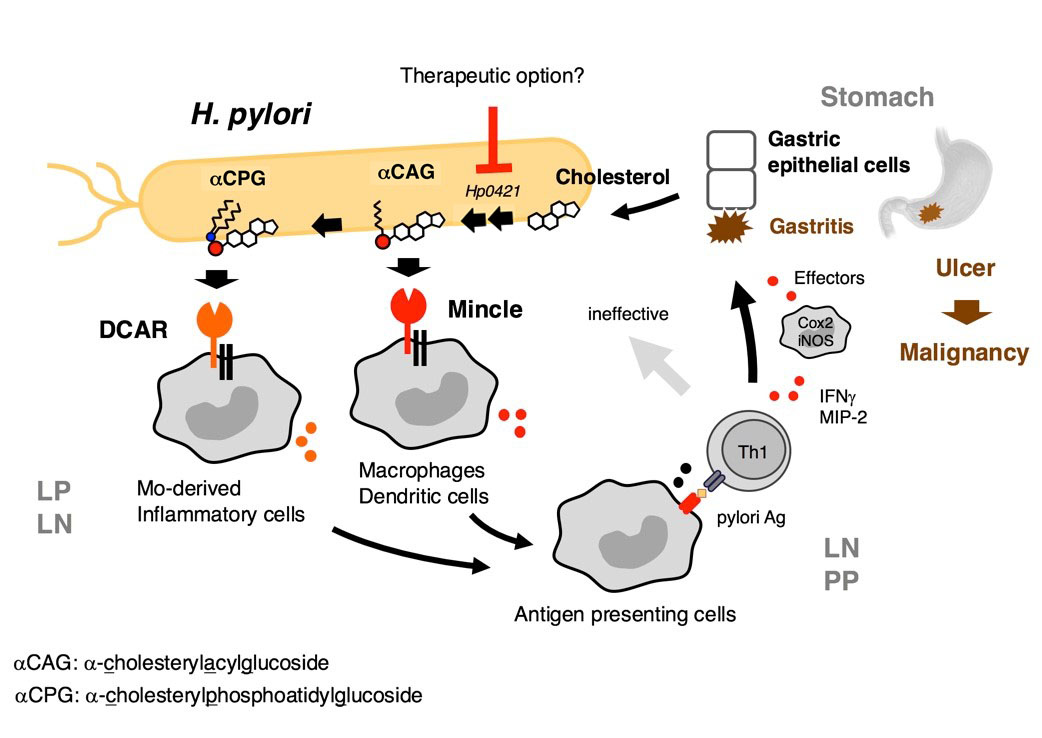Helicobacter pylori metabolites exacerbate gastritis through C-type lectin receptors (Yamasaki Lab, in JEM)
Helicobacter pylori (H.pylori) causes gastritis, which has been attributed to the development of H. pylori-specific T cells during infection. However, the mechanism underlying innate immune detection leading to the priming of T cells is not fully understood, as H. pylori evades TLR detection.
Here, we report that H. pylori metabolites modified from host cholesterol exacerbate gastritis through the interaction with C-type lectin receptors.
Cholesteryl acyl α-glucoside (αCAG) and cholesteryl phosphatidyl α-glucoside (αCPG) were identified as noncanonical ligands for Mincle (Clec4e) and DCAR (Clec4b1). During chronic infection, H. pylori-specific T cell responses and gastritis were ameliorated in Mincle-deficient mice, although bacterial burdens remained unchanged. Furthermore, a mutant H. pylori strain lacking αCAG and αCPG exhibited an impaired ability to cause gastritis. Thus H. pylori-specific modification of host cholesterol plays a pathophysiological role that exacerbates gastric inflammation by triggering C-type lectin receptors.
This article is published in Journal of Experimental Medicine in Sep 29, 2020.
Title: “Helicobacter pylori metabolites exacerbate gastritis through C-type lectin receptors”
Authors: M Nagata, K Toyonaga, E Ishikawa, S Haji, N Okahashi, M Takahashi, Y Izumi, A Imamura, K Takato, H Ishida, S Nagai, P Illarionov, B Stocker, M Timmer, D Smith, S Williams, T Bamba, T Miyamoto, M Arita, B Appelmelk and S Yamasaki
Links
- Home
- Achievement
- Research Activities
- Helicobacter pylori metabolites exacerbate gastritis through C-type lectin receptors (Yamasaki Lab, in JEM)









